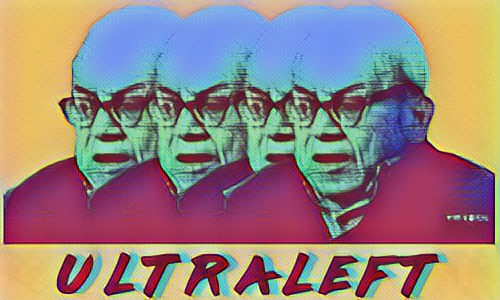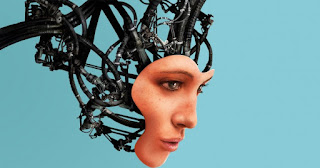New Humanity’s Experimental Utopias, Part I
Saint-Simon and Hayek: New Humanity
New Humanity is an utopian concept that involves the creation of a new ideal human being or citizen replacing un-ideal human beings or citizens. The meaning of a New Humanity has widely varied and various alternatives have been suggested by a variety of religions and political ideologies, including Christianity, technocracy, and libertarianism.
Saint-Simon and New Humanity
In Henri de Saint-Simon there was always a double tendency: his positivist and scientific studies impelled him to found a purely practical and demonstrable moral code, while his sentimental and mystical tendencies led him to desire a religion. He believed that Christianity had greatly forwarded morality, but he declared that its reign was at an end. His religious tendency grew by degrees; he declared that the crisis was reached which had been predicted by the Old Testament, prepared for by the Biblical societies, and expected by the Jews for eighteen centuries, which was to end in the establishment of a truly universal religion, in the adoption by all nations of a pacific social organization and the speedy betterment of the condition of the poor. Such was the dream developed in his book, “The New Christianity.”
His desire was first for the integration of the sciences, then for government by scientists.
He looked toward an era of technocratic control, under which the world would be run by an elite of the able, for the good of the many, all obeying a gospel of work. In his major work, Nouveau Christianisme, Saint-Simon advocated a New Christianity—a secular humanist religion to replace the defunct traditional religions—that would have scientists as priests. Saint-Simon was fascinated by the enormous potential of science and technology, which led him to advocate a socialist society that would eliminate the disorderly aspects of capitalism and which would be based upon equal opportunities.
Saint-Simonianism started as a policy-oriented social philosophy but ended as a mystical religion. The overarching force governing the society to come, in their view, was to be religious. The organic nature of the coming age demanded a common religion that would enfold all other facets of this new world and give them direction
and meaning. Saint-Simon argued that the core of Christianity was a universal ethic reducible to the Golden Rule, whose specific form, however, needed to evolve in step with the needs of society. Hence the book excoriated the unevolved and anachronistic postmedieval Catholic Church as well as the defects of Protestantism and articulated a New Christianity appropriate for the future industrial society. In this New Christianity, science was to occupy the key position, with scientists among the spiritual leadership. Artists were assigned the task of presenting the new religion to the masses. "Philanthropy" or self-less devotion to the common good was to become a central focus of the ethical system, paired with the injunction to participate in the industrial production of goods that would improve the life of the masses.
God, in their theology, was in all things and all men. Human beings were thus enjoined to love one another and to reject asceticism and otherworldliness in favor of a joyful, material productiveness and creativity. The organic society of the future would be held together by this altruistic sentiment - love - which would direct all human actions to the common good, replace the egotism of critical society, and fulfill the progressive will of humankind. By uniting all human activity around the common goal of a better future, the full power of the sciences would be unleashed.
By living this Golden Rule our imaginations are transformed and our consciousness liberated to love our fellow human. This is humanity transformed through the power of love. This is a New Humanity.
Hayek and New Humanity
Probably no idea and no sentiment in the early church dominated the Christian feeling for life so thoroughly and comprehensively as the consciousness of the newness of the life into which persons viewed themselves transposed through participation in the life and body of Christ. The new humans experience the newness of life as the life of Christ that is beginning to mature in themselves, as the overwhelming experience of a new being already now commencing.
The new human is one who is engaged in the process of renewal; new life is a principle of growth of the Christian maturing. It is Christ who brought about the reunion of Heaven and Earth to be completed by a New Humanity.
When studying the texts of particularly the New Testament, what you see there is the seedbed of freedom of conscience. You see democratic religion in the pages of the New Testament. So whereas some people in Acts see some kind of nascent socialism, actually what you are seeing is free people electing to gather together in solidarity around key principles and ideals and goals.
When reading Hayek and his argument for the link between private property and freedom, there is a direct line going all the way back to those pages of the New Testament, because what the Apostle Paul and others were representing was an alternative to totalitarianism. When you look at John– and whatever else you think the Book of Revelation says about the future- it definitely was the greatest political protest letter ever penned in the history of the world, because he was saying, “The state has no business telling us how we should govern our own life together.”
In essence Saint John’s Apocalypse serves as a precursor to the idea that Hayek later calls “The Fatal Conceit.” The Fatal Conceit is that some men, for whatever reason, are just born better; they’re just more ambitious; they are just a higher grade of humanity. The Fatal Conceit says that some men are born to govern all other men. John’s Apocalypse and much of history is a rebuttal to that notion.
In some ways, freed market economics is the doctrine of the fallen nature of man expressed in economic terms. What freed market economics is, is a paraphrase; a secular paraphrase of a biblical concept.
When reading the writings of the advocates of central planning, from Marx or even before Marx, it’s clear that if you took it in a different context that we are talking about gods. Anyone that believes that they know enough to run the lives of hundreds of millions of people is in some sense making himself a god-man. He’s giving to himself, to the state and the planning class, divine attributes.
Hayek is deeply critical of Saint-Simon for his advocacy of a technocracy. But Hayek’s emphasis of fundamental uncertainty is the method by which to refine Saint Simon’s scientistic society. Friedrich Hayek explained why attempts to control economic unpredictability often fail: no one person possesses all the knowledge to prevent that which causes uncertainty in the market. In his essay “The Use of Knowledge In Society,” Hayek writes: “What is the problem we wish to solve when we try to construct a rational economic order?…to put it briefly, it is a problem of the utilization of knowledge which is not given to anyone in its totality.”
Economists refer to this lack of information as the knowledge problem. No one person possess all the knowledge needed to control uncertainty. Our approach to uncertainty and unpredictability in the market, then, should not be a desire to control driven by fear of the unknown. Hayek’s recognition of the knowledge problem suggests humility as a better approach. As Hayek himself said, “the curious task of economics is to demonstrate to men how little they really know about what they imagine they can design.”
Experimentation with Utopias
However, markets are not the end goal. The end goal is anarchism which will always look like something just beyond the horizon of knowledge. Freed markets unleash the creative complexity that make the dynamic testing of a wide range of liberatory strategies more meaningfully possible.
It is not impossible that we would, in the long-run, completely outgrow markets in the traditional limited sense as we perceive of them now and develop some sort of yet unimagined post scarcity utopia but, it seems clear that regardless, markets exist as unavoidable steps and laboratories along the way. When market-anarchists call for “freed markets” we are advocating for a dynamic process of experimentation in an attempt to ethically solve coordination problems.
Unlike strict normative philosophies, market anarchism provides space for many systems to explore. Capitalism and communism require the active subjugation of liberatory experiments. In the practice of market-anarchism, anyone can try out their ideals as long as they meet basic criterion for ethical coordination. Those criterion do not need to be coordinated or enforced by a state because they represent normative trends within the workings of radicalized markets. In practical terms, market anarchism allows for things like confederations, libertarian municipalism, direct democracy, various interlocking legal systems, competing currencies and the abolition of currencies, collectives and hardcore individualism, and a wide range of economic philosophies. The real test is whether they work or not! Beyond these limited goals though it suggests a scientific pursuit of working knowledge of roots and applied solutions to technological and ideological problems. Markets make it so that all of these paths have the capacity to coordinate expectations of one another in a way that does not violate the rights of individuals or groups. This is what makes it a superior mode of both ethics and coordination as it innately leverages the strengths of theory and practice from a diverse marketplace.
Market anarchism points out that we should ideally be humble with respect to the limits of its own capability of knowledge. After all, knowledge problems are core to our advocacy of markets as a tool. But what this suggests is something more beautiful than is often explicitly mentioned. In advocating for anarchism, we are advocating for a tool that helps us to develop a future more magnificent than we are capable of knowing. The knowledge problem of anarchism is the process of striving for utopia.
Using the word ‘markets’ is a commitment to complexity and experimentation as well as the role of voluntary and spontaneous coordination as a stigmergic means of transforming society. ‘Anarchist’ symbolizes the utopistic ends while containing within in it the seeds of various means. In the end, it is of dire importance that we learn from the mistakes of anarchists in the past and utilize whatever aid freed markets can contribute to our impossible dreams. If communism or capitalism suggest a rigid world where dynamism is throttled, freed markets suggest a playground for practical utopian dreams.
Ultimately, New Humanity is free to experiment with all utopias as we build a better world based on a simplified universal principle of philanthropy in the face of uncertainty. Saint-Simon’s technocracy and Hayek’s libertarianism leads to the concept of freed markets. Markets that have been truly freed from the defects of capitalism- which is a symbiotic relationship between corporate cronies and government as well as rule by capitalists of workplaces, society, and the state. These markets will be freed by a technocracy of engineers, artists, and entrepreneurs. Working from a truly scientific perspective of uncertainty, their participation in the market only generates dynamism within experimental utopias. What these societal configurations look like will vary across forms from civil associations, workers councils, neighborhood democracies, solidarity economies, libertarian municipalities, and confederations. In such a plurality there will be a brilliant multiverse of freedom of philosophy.







Comments
Post a Comment